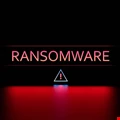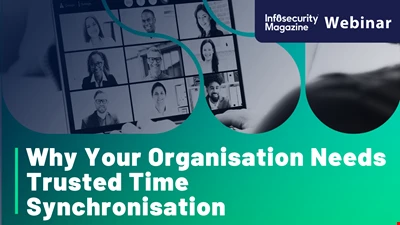Infosecurity News

Calls for Global Digital Estate Standard as Posthumous Deepfake Fraud Risk Grows
The OpenID Foundation warns that fragmented policies on posthumous digital accounts could open the door for fraudsters to exploit AI deepfakes

Israel: RedAlert Spyware Campaign Exploits Wartime Panic With Trojanized App
Espionage campaign exploits Israel-Iran conflict, distributing a trojanized Red Alert app via SMS

AI and Deepfakes Supercharge Sophisticated Cyber-Attacks, Says Cloudflare
Cloudflare Threat Report warns that AI tools enable attackers who lacked required skills to generate effective attacks rapidly and at scale

Leaked Database Sheds Light on Iranian Crypto Sanctions Evasion
Ariomex database reveals potential sanctions evasion and capital transfers tied to Iranian actors

Half of US CISOs Work the Equivalent of a Six-Day Week
Seemplicity finds US security leaders work 11 or more extra hours per week

Huge “Shadow Layer” of Organizations Hit by Supply Chain Attacks
Black Kite reveals 26,000 unnamed corporate victims linked to 136 third-party breaches

Iranian Cyber Threat Actor Targets Iraqi Government Officials in AI-Powered Campaign
Zscaler ThreatLabz assessed with medium to high confidence that an Iranian adversary targeted Iraq’s Ministry of Foreign Affairs in a new cyber-attack

Chrome Unveils Plan For Quantum-Safe HTTPS Certificates
Google Chrome initiates quantum-resistant measures via Merkle Tree Certificates to secure HTTPS

Expect Iran to Launch Cyber-Attacks Globally, Warns Google Head of Threat Intel
John Hultquist suggests “aggressive” Iranian cyber attackers will target the US and its Gulf allies with plausibly deniable ransomware attacks, hacktivist campaigns and more

Hybrid Middle East Conflict Triggers Surge in Global Cyber Activity
Military strikes in the Middle East escalate cyber ops, raising spillover risks globally for firms

ClawJacked Bug Enables Covert AI Agent Hijacking
Oasis Security reveals how a new ClawJacked vulnerability could allow attackers to silently take over a victim’s OpenClaw agent

Ransomware Payments Decline 8% as Attacks Surge 50%
Chainalysis reveals a big surge in median ransomware payment size in 2025 despite overall drop in criminal revenue

North Korea's APT37 Expands Toolkit to Breach Air-Gapped Networks
The security researchers from Zscaler ThreatLabz have also discovered five new tools deployed by the North Korean hacking group

UK Vulnerability Monitoring Service Cuts Unresolved Security Flaws by 75%
The UK government says its new Vulnerability Monitoring Service has cut unresolved security flaws by 75% and reduced cyber-attack fix times from nearly two months to just over a week

‘Project Compass’ Cracks Down on ‘The Com’: 30 Members of Notorious Cybercrime Gang Arrested
International law enforcement operation led by Europol targets network of teenagers and young adults involved in ransomware attacks, extortion and other crimes

Aeternum Botnet Shifts Command Control to Polygon Blockchain
New botnet Aeternum shifted C2 operations to Polygon blockchain, complicating takedown efforts

Darktrace Flags 32 Million Phishing Emails in 2025 as Identity Attacks Intensify
2025 saw 32M phishing emails, with identity threats surpassing vulnerabilities

Exploitable Vulnerabilities Present in 87% of Organizations
Datadog report reveals two-fifths of services are affected by exploitable bugs

UK's Data Watchdog Gets a Makeover to Match Growing Demands
The UK’s Information Commissioner's Office is about to ditch single-leader model for CEO and board in a major shake-up

Google Disrupts ‘Prolific’ and ‘Elusive’ China-Linked Global Hacking Campaign
UNC2814 hit 53 victims in 42 countries with novel backdoor in decade long cyber espionage operation



